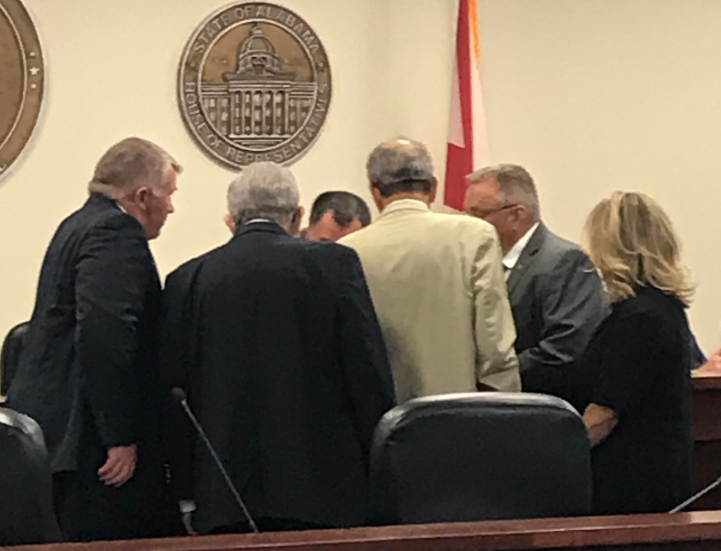BIRMINGHAM — Three federal judges heard final arguments in the Allen v. Milligan redistricting case on Monday before they decide the fate of a congressional map Republicans recently passed in a special session within the next couple of weeks.
A three-judge panel in federal district court in January 2022 found Alabama's congressional map passed in 2021 likely unconstitutional and said a "remedial plan will need to include two districts in which Black voters either comprise a voting-age majority or something quite close to it." The U.S. Supreme Court affirmed the judges' opinion on appeal by the State of Alabama in June.
Under the new map, the seventh congressional district would have a 51% black voting-age population. The second congressional district would lose Autauga County, Conecuh County and parts of Elmore and Covington Counties while adding Lowndes, Macon and Russell Counties. The black voting-age population in the district would increase from 32% to approximately 40%.
State House Pro-Tempore Chris Pringle (R-Mobile) said during a recent deposition with a plaintiffs’ attorney aired at the Monday hearing that he thought his earlier version of a new congressional map was in better compliance with the Voting Rights Act than the version sponsored by State Sen. Steve Livingston (R-Scottsboro) ultimately passed into law during the special session.
Pringle said during the deposition that he told Livingston during the special session that Livingston’s plan was “not going to pass with my name on it” and would be passed as a Senate bill, not a House bill.
Most of the arguments from the plaintiffs' side centered around the new plan allegedly not creating a second “opportunity district” where black voters can elect a candidate of their choice.
Abha Khanna, an attorney for the plaintiffs, said “nothing has changed” from the 2021 plan and the 2023 plan passed by the Alabama Legislature.
“There’s no dispute that the white majority usually if not uniformly will vote as a block to defeat black-preferred candidates,” Khanna said. “Racial polarization is intense and it is stark.”
Alabama Solicitor General Edmund LaCour Jr. defended the legislature’s map passed in 2023.
LaCour said plaintiffs' maps would result in district lines that break up the Black Belt into three or more districts to “hit racial goals.”
LaCour added some of the plaintiffs' arguments amounted to “affirmative action in redistricting.”
“It’s not racial consciousness. It’s racial predominance,” LaCour said about arguments by plaintiffs' attorneys.
LaCour said the map Alabama Republicans passed in 2023 is “substantially different” from the one passed in 2021.
Most of the probing questions from judges were directed towards the state represented by LaCour during closing arguments on Monday afternoon.
U.S. District Judge Terry Moorer asked LaCour, “What I hear you saying is the state of Alabama deliberately chose to disregard our instructions to draw two majority-black districts or one where minority candidates could be chosen. Did they deliberately disregard it or not?"
“(Congressional) District two I submit is as close as you’re going to get to a second majority-black district without violating the Supreme Court's decision in Allen which is the supreme law of the land when it comes to interpreting section two (of the Voting Rights Act). This is as close as you can get without violating the Constitution," LaCour answered.
To connect with the author of this story or to comment, email caleb.taylor@1819News.com.
Don't miss out! Subscribe to our newsletter and get our top stories every weekday morning.










